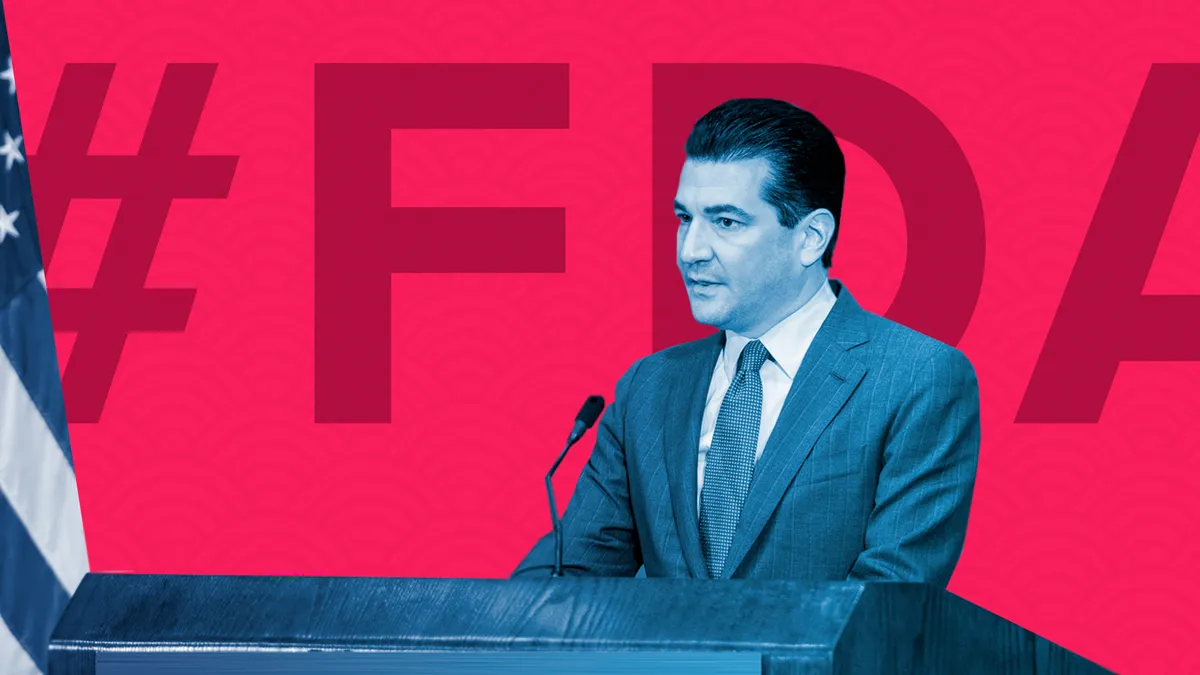Dive Brief:
- FDA on Tuesday said it issued warning letters to device manufacturers Sientra and Mentor Worldwide, a unit of Johnson & Johnson, for failing to comply with post-approval study requirements to assess long-term safety and risks of their silicone gel-filled breast implants. The studies are required by the agency under the companies’ premarket approval orders.
- The agency's action comes days before it is set to hold a public meeting of its General and Plastic Surgery Devices Panel to discuss concerns related to known risks associated with breast implants. The meeting is scheduled for March 25-26 at the agency’s Silver Spring, Maryland, headquarters.
- FDA cited low recruitment as well as poor data and follow-up rates in the companies’ post-approval studies as the main reasons for the warnings. In a statement shared with MedTech Dive, a Mentor spokesperson said the company is "disappointed with the FDA’s decision to issue a Warning Letter" despite its "good faith efforts to address post-approval study requirements." Officials at Sientra could not be reached for comment.
Dive Insight:
The warning letters come days after FDA's call-out of silicone breast implants as among the devices and materials that require more scrutiny due to immune or inflammatory reaction in some patients.
Ahead of next week’s panel meeting on breast implants, FDA has said it is monitoring the known risks associated with the devices, including capsular contracture, implant rupture and breast implant-associated anaplastic large cell lymphoma, or BIA-ALCL. In early February, the agency said it had become aware of at least nine patients dying from the form of cancer.
Concerns about the safety of silicone breast implants prompted FDA to place a moratorium on sales of the devices in 1992 that ended in 2006 when the agency approved new implants from Allergan and Mentor. FDA first warned of a possible association between breast implants and development of BIA-ALCL in 2011, but lacked strong evidence linking the two. By 2016, the World Health Organization officially tied the cancer to the devices.
In September, an MD Anderson Cancer Center study brought fresh attention to potential safety issues with the devices, suggesting a higher risk between breast implants and diseases such as rheumatoid arthritis and scleroderma. At the time, FDA questioned the validity of the study and defended its record of advising the public about risks associated with the devices.
In December, France issued a mandatory recall of textured breast implants, and Allergan lost its CE mark soon after. The company has ceased European sales.
Last month, FDA said it had received 660 adverse event reports related to breast implants since 2010, with 246 coming in the last year. The agency attributed some of the increase in reports to increased awareness of BIA-ALCL.
FDA’s warning letters to Mentor and Sientra both concern breast implant products first approved in 2013. FDA said it found several serious deficiencies in Mentor’s post-approval study for its MemoryShape implant. The company failed to enroll the required number of patients in the study and had poor follow-up rates. In addition, Mentor’s study contained significant data inconsistencies, including poor patient accounting and missing race and ethnicity data, FDA said.
But the agency said it concluded, after reviewing several interim study reports submitted by Mentor, that the company’s progress on the post-approval study appeared adequate.
In its letter to Sientra, FDA identified the company's 61% follow-up rate with patients as poor, which the agency said showed inadequate progress on the company's part.
FDA said it requested responses from both companies within 15 working days detailing how they will correct the violations noted in the warning letters. Failure to comply could result in criminal and civil penalties, the agency said.










